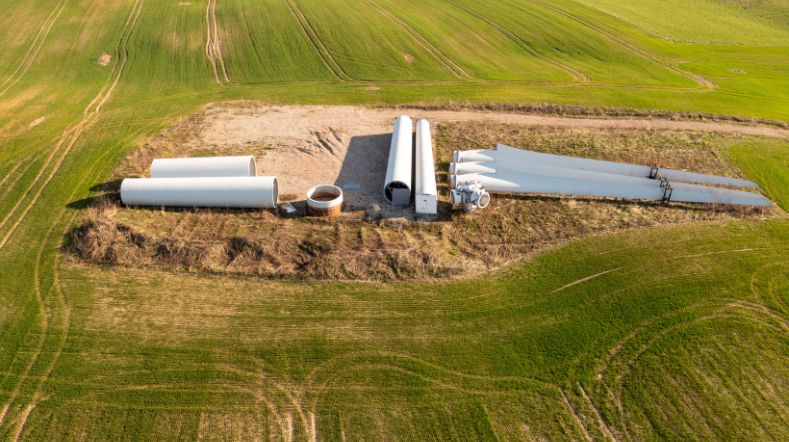
Reduce Europe’s dependence on Chinese wind power and electrolysers
China wants to be self-sufficient in energy and make the rest of the world dependent on them. This can be inferred from official statements and documents from the country. The geopolitical implications of this could be far-reaching, but they could also have a direct impact on the pace and cost of our energy transition. Europe must therefore take steps to avoid strategic dependencies in offshore wind energy and the electrolysis needed to produce green hydrogen.
Read the study
Read the study ‘The EU’s China challenge: rethinking offshore wind and electrolysis strategies and dependencies’ on China’s current and future role in wind power and electrolysis.
This is what researchers from TNO and The Hague Centre for Strategic Studies (HCSS) conclude in the report ‘The EU’s China challenge: rethinking offshore wind and electrolysis strategies and dependencies’. This report contains an analysis of China’s current and future role in wind power and electrolysis supply chains. The research was done at the request of the China Knowledge Network (CKN) of the Clingendael Institute/LeidenAsiaCentre, with support from the Ministry of Economic Affairs and Climate Policy and the Ministry of Foreign Affairs.
World uses raw materials from China for the energy transition
‘China is structurally keeping its market closed to Europe, but expects free access for their products on our continent. This is part of what is enabling them to build a position that allows them to compete excellently on price. In addition, the world leans heavily on China for the energy transition for the use of raw materials, including rare earths. The latter are very important in the manufacture of wind turbine components. President Xi speaks explicitly about the geopolitical need to make supply chains more dependent on China. ‘This poses great risks’, explains Joris Teer, strategic analyst and China specialist at HCSS.
Geopolitical analysis with knowledge of Chinese technology and market
The report combines HCSS’ geopolitical analyses with TNO’s technological and market expertise in energy and materials. TNO Vector’s Karlien Sambell mapped the value chain of offshore wind and electrolysis with her fellow researchers. They studied their development in the major trading blocs of the EU, China, and the US in recent years, and what can be expected in the coming years. In addition to literature research, the researchers held dozens of interviews with policy officials, companies, business organisations, and universities in a range of countries.
‘China is still a black box in many areas. Getting the right information is quite complicated. It’s difficult to pinpoint exactly what is happening there in the electrolysis and wind power markets. But by combining the expertise of HCSS and TNO, we were still able to paint a fact-based picture’, she says.
Offshore wind technology: avoid strategic dependence
Their study revealed that China has a near monopoly on the production of permanent magnets, an essential component of wind turbines. The country has developed strongly in offshore wind technology in recent years and is expected to cement its position on the global stage in the coming years. It is therefore important to continue responsibly cooperating with China where possible, while avoiding unwanted strategic dependencies.
TNO researcher Sam Lamboo: ‘In recent years, Europe’s major wind turbine manufacturers have been incurring hefty losses for a variety of reasons. The question is how to maintain production capacity in Europe and what interventions are needed to achieve this. If European producers do not survive this difficult period, our technological dependence on China is likely to increase rapidly. The electrolysis market has also been developing rapidly in China. The Chinese have focused entirely on alkaline electrolysers, while Europe is strong in PEM and alkaline technology. It is still a young market with many uncertainties on how it will develop. The recurring question is how to avoid a future in which we’re totally dependent on China for equipment and components. Will the market be flooded with cheap alkaline electrolysers from China in a few years’ time, or will we pay the price for our independence by opting for more expensive, home-grown equipment?’
Strategic choices: the Netherlands, Europe, and business
According to Joris Teer, these are the strategic trade-offs to be made at both national and European levels. But the business community will also have to choose whether to opt for cheaper Chinese products in the short term, with the risk of dependency on parts maintenance, or to invest in more expensive products with much greater security in the longer term.
‘Think of Russia turning off the gas tap. Many companies are still in deep trouble today when Russia decided to weaponise our gas dependence. The same could be true of wind energy. If you invest in cheaper Chinese complex components, you will depend on them for maintenance and replacement. From a geopolitical perspective, this is an extremely bad idea – especially with wind power becoming an increasingly important part of our energy mix. The war in Ukraine has shown that it can sometimes only take a few months for economic relations between countries to become untenable. A military crisis in East Asia, for example, could cause a sudden extreme deterioration of European-Chinese relations. Hedging those risks by protecting the market and supporting European stakeholders costs money, but it significantly reduces your dependency.’
Restrictive measures needed from the EU
To stimulate and protect its own industry, the EU will have to take restrictive measures to enforce a level playing field. According to the researchers, one option is to tighten standards on safety, quality, working conditions, and environmental standards. Member states can also set stricter national security and energy supply security requirements. And as long as China continues to keep its market closed, only companies from trusted countries would be able to bid for large tenders for critical infrastructure, such as offshore wind farms. The same can be applied to large tenders in the field of electrolysis.
‘This doesn’t only concern technical innovations; it also includes policy innovations. Consider collaboration with like-minded countries inside and outside the EU to ensure the availability of sufficient alternatives to Chinese wind power and electrolysers’, Joris Teer says.
Get inspired
Improving wind turbine maintenance with the sensor installation robot
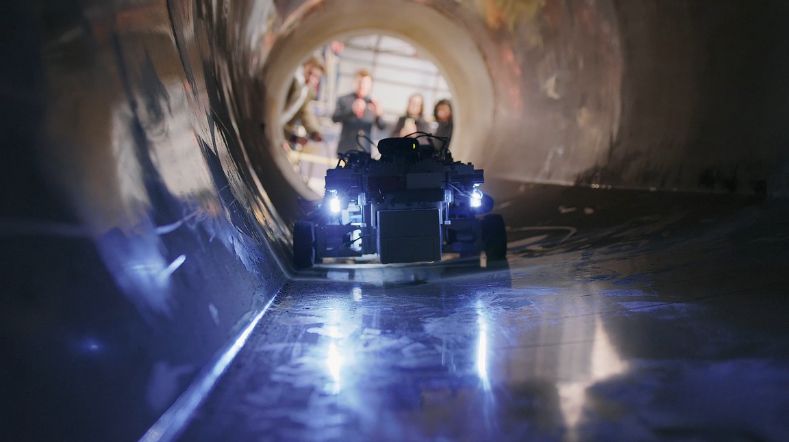

Project launched for recycling wind turbine blades
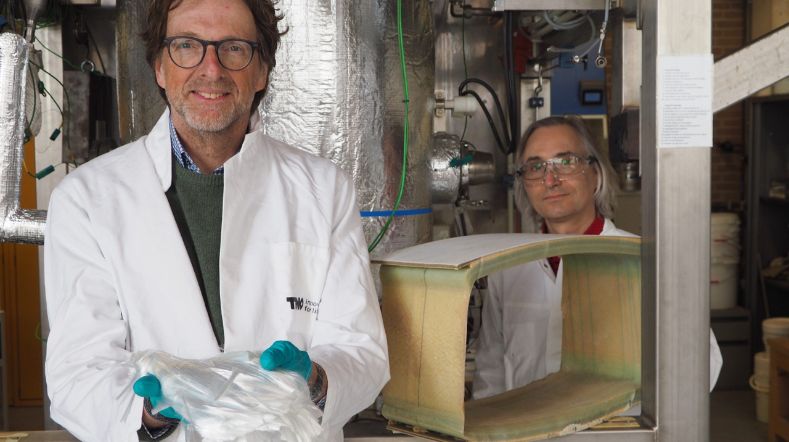

TNO research leads to better damage prediction for offshore wind turbine blades
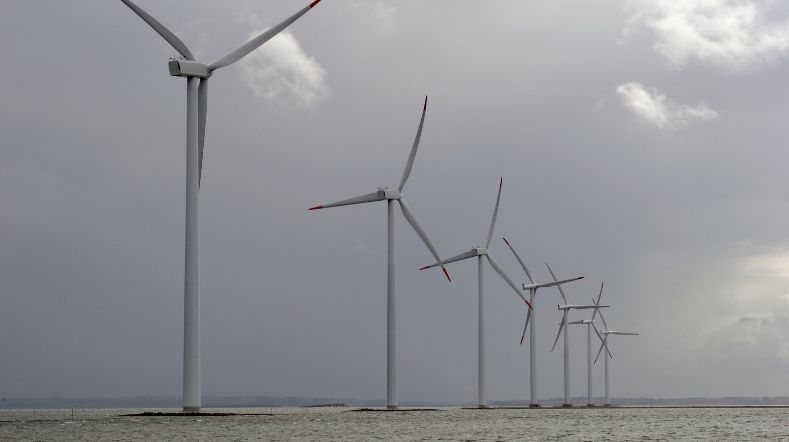

Better damage prediction for wind turbine blades through unique weather measurements at sea
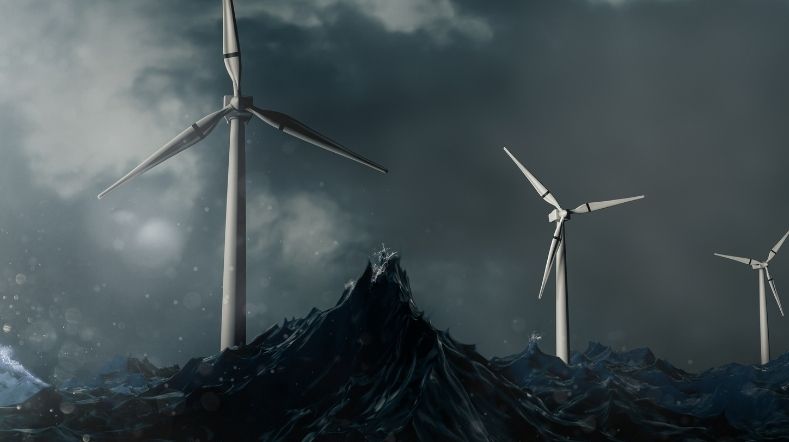

First study on public perception of wind turbine circularity
